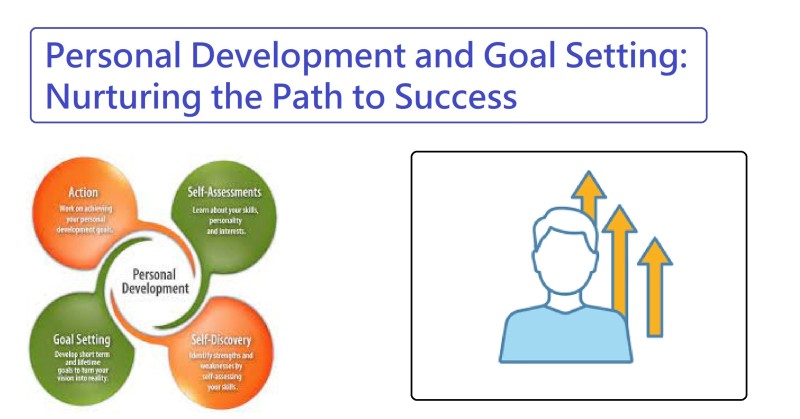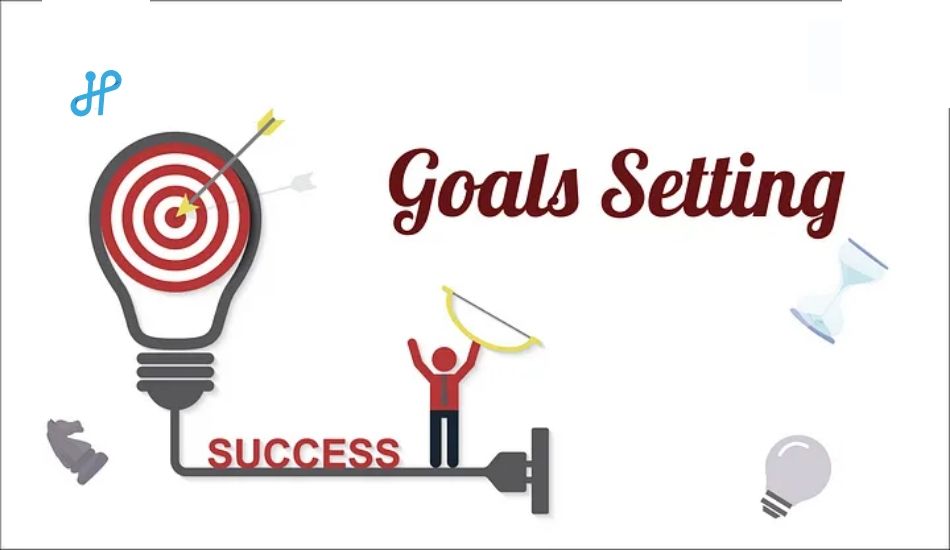
Personal development: Setting personal development objectives increases self-confidence and professional possibilities. Having extra skills and expertise might increase your attractiveness to potential employers. How do you advance in your field without knowing what goals to set? Personal Development Goals for Work On the other hand, as an HR manager, how can you positively impact people's growth goals? We'll look at nine examples of personal growth objectives for work to help you enhance your career, gain confidence, and find fulfillment. Then, we look at how companies may assist their employees in achieving personal development objectives at work while still keeping their top performers motivated and engaged.
Building professional connections allows people to connect with decision-makers in their businesses. Networking creates new business prospects and allows you to showcase your talents and hard work to a wider audience. This type of goal will automatically increase your communication abilities. You may utilize this chance to get out of your comfort zone, enhance your public speaking abilities, and practice active listening. All of these provide significant benefits to your professional self-esteem.
Make a particular number of contacts within a given time limit.
For the following quarter, attend a networking event once a month.
Confidence has a significant impact on many parts of one's life. It impacts almost everything, from developing connections with significant people to asking for a raise or performing well in a job interview.Self-confidence at work motivates you to grasp chances, put more effort into tasks, and portray yourself favorably to others. These characteristics help you look more trustworthy, employable, and productive. As a junior executive, you may improve your communication skills by eliminating hesitation during presentations. Set a time limit for yourself, such as reducing your hesitations to five per conversation over the next month. You may use this to develop new abilities. If you are a Python expert, you may be hesitant to use JavaScript. You may set a goal to execute a simple JavaScript application within the next 30 days.

See also: Strategies for Inclusive Care that Drive Student Success.
Improving productivity does not imply working longer hours; rather, it tries to help you manage activities and objectives more efficiently and effectively. By choosing projects and estimating your time, you learn to better manage your time when you're productive. Improve your work ethic and prevent procrastinating. Productive individuals with strong organizational and time management abilities make excellent candidates for leadership roles. Assuming you operate as a technical support case manager, you may strive to close a certain number of cases with favorable results during the following quarter.
Stress management enables you to prevent burnout, complete challenging activities, and navigate unpleasant circumstances. It's one of numerous personal work objectives that are easily transferable to other aspects of your life. Up to 25% of adults have experienced burnout. Therefore, handling stress is a highly transferable ability. Handling difficult situations at work demonstrates to employers your ability to think critically, avoid bias, and lead with confidence. This is especially beneficial for those working with shift coordination or in industries with a high level of care, such as medical and nursing.
Focus on particular goals. Identify ways to reduce stress and enhance self-care habits. You can:
Aim to sleep for at least seven hours every day for a month.
Take at least one personal mental health day per month.
Decision-making is a talent that anybody can develop. It has three levels: emotional, value-based, and intellectual. Emotional decision-making occurs when employees use their emotions to guide their decisions, whereas value-based decision-making is founded on personal values. Employers place the most weight on logical decision-making among the three. People who make rational judgments may do it calmly under pressure, using real evidence and avoiding personal prejudice.
Employers can assess applicants' decision-making abilities with skills assessments like the Big 5 (OCEAN) personality exam. To strengthen your decision-making abilities, make a personal development goal to transition from emotional to logic-based decision-making within a specific timeframe.
Then, keep a record of your professional decisions and reflect on what influenced your selections. You could keep this notebook for three months and use it to make job decisions. Did you, for example, dodge a difficult talk with a coworker about a deadline? Was it an emotional decision to avoid confrontation, or was it logical because the encounter was unnecessary? Could you have made better selections in specific scenarios?
Also, read: Strange Reasons Meditation Leads to a Happy Life.
Many team challenges, regardless of sector or scenario, may be overcome by learning to provide and accept feedback more effectively.A team that values honest criticism grows swiftly and learns from its failures. To maintain productivity, team members identify and address their blind spots. Someone who accepts and comprehends feedback as a positive professional boost utilizes their new knowledge for future efforts. Giving effective feedback requires critical thought and confidence. Influential executives understand that positive feedback improves staff performance. To improve your ability to receive feedback, consider minimizing your defensiveness. For example, during the following two months, you may limit the negative words you use in response. When providing feedback, attempt to balance positive and negative comments.
We do not learn, grow, or progress just by experiencing things. We also need to reflect on such experiences! Mindfulness and presence can be valuable personal development goals. These activities help people be present in the moment, allowing them to focus better on tasks. Mindfulness and reflection lead to less stress, increased self-improvement, and improved time management. These are all desirable characteristics for leaders, as well as those in positions of significant responsibility. You may set a goal of meditating two or three times each week for a month and monitor how you feel and perform at work.
According to David Goleman, author of the 1995 book "Emotional Intelligence," "Emotional intelligence is the key to both personal and professional success." Thus, it is an excellent personal growth goal. Empathy, self-control, and cooperation are key components of high emotional intelligence. People who are emotionally intelligent can "read" emotions better, convey their own feelings more effectively, and understand how to separate their current emotions from their actions. They're also wonderful leaders. Empathetic CEOs are reported to increase staff engagement by up to 76%.Increasing your emotional intelligence may require you to change several parts of your life. For example, more activity can have a favorable impact on your mental health.
Take three walks each week for the following two months.
Over the next quarter, visit the gym at least once per week.
Make more time for your friends and family.
Learning and development are two of the most important personal growth goals, as they are essential for professional advancement. People's perceptions of learning and growth vary. It might include reading new literature, attempting new hobbies, or exercising skills to improve them. Carol Dweck's book "Mindset" identifies two sorts of mindsets: fixed and growth. A fixed mentality occurs when individuals believe their skill sets are established and defined by their innate abilities. People with fixed mindsets create limitations for themselves. Individuals with a development mindset believe in their boundless potential and dedicate significant effort to studying and achieving it. As you may expect, this is a typical perspective among many successful individuals.
What is an example of a personal development goal for work?
What are some examples of personal development objectives at work? Personal growth examples at work might include refining your response to feedback, completing more tasks, or dealing with difficult situations. All three might help you gain self-confidence and develop into a model employee.
To help you, here are our top tips on creating and maintaining an effective PDP.
Think about the work you've already done.
Write a list of your strengths and weaknesses.
Start setting your goals.
Form a SMART action plan.
Set aside time to evaluate and update your PDP.
How do I set a personal goal at work?
Think about your present abilities and find places for development. Apply the SMART criteria: Verify that objectives are specific, quantifiable, realistic, relevant, and time-bound. Create a detailed action plan. Divide goals into reasonable chores and schedule how you will reach them.
Disclaimer: SPIRITUAL DEVOUT claims no credit for images featured on our blog site unless otherwise noted. All visual content is copyrighted to its respectful owners.